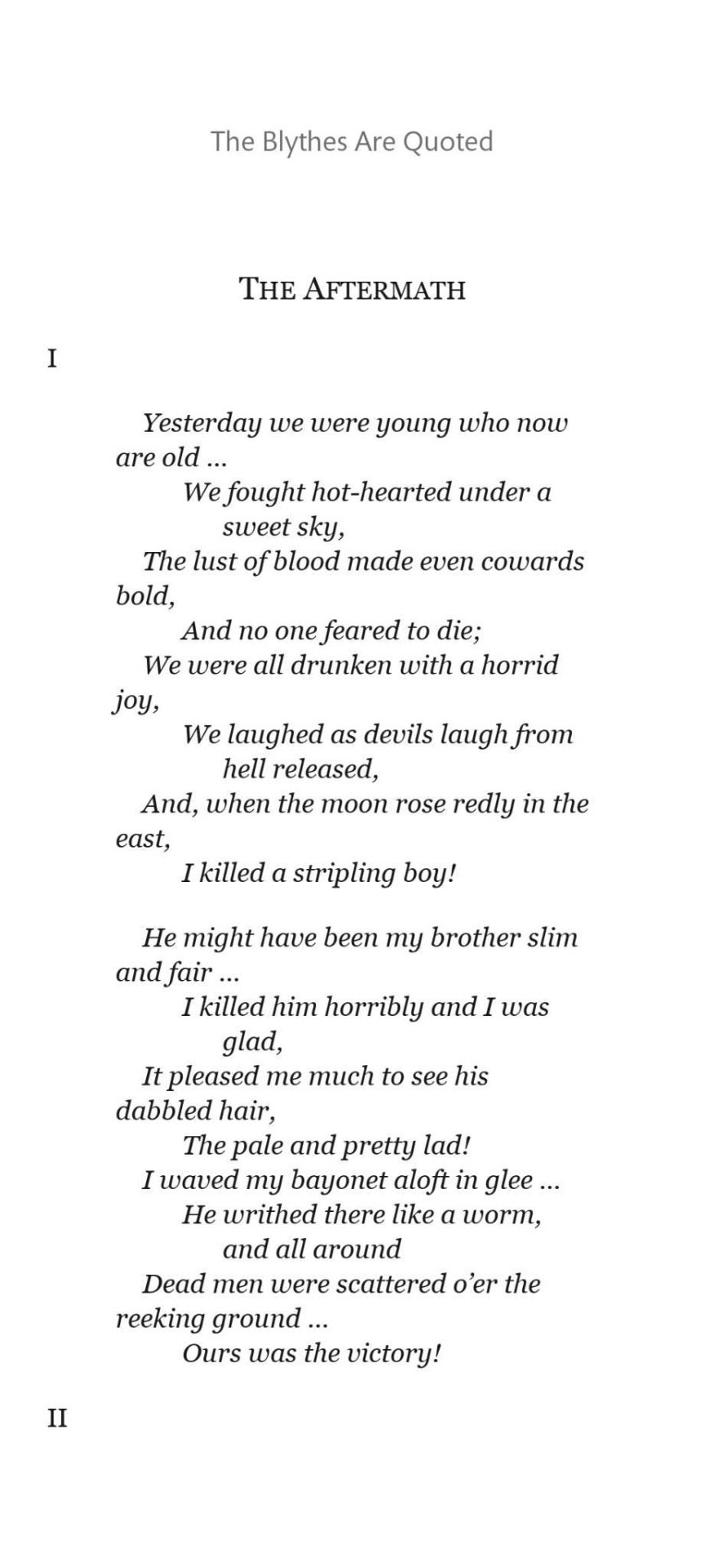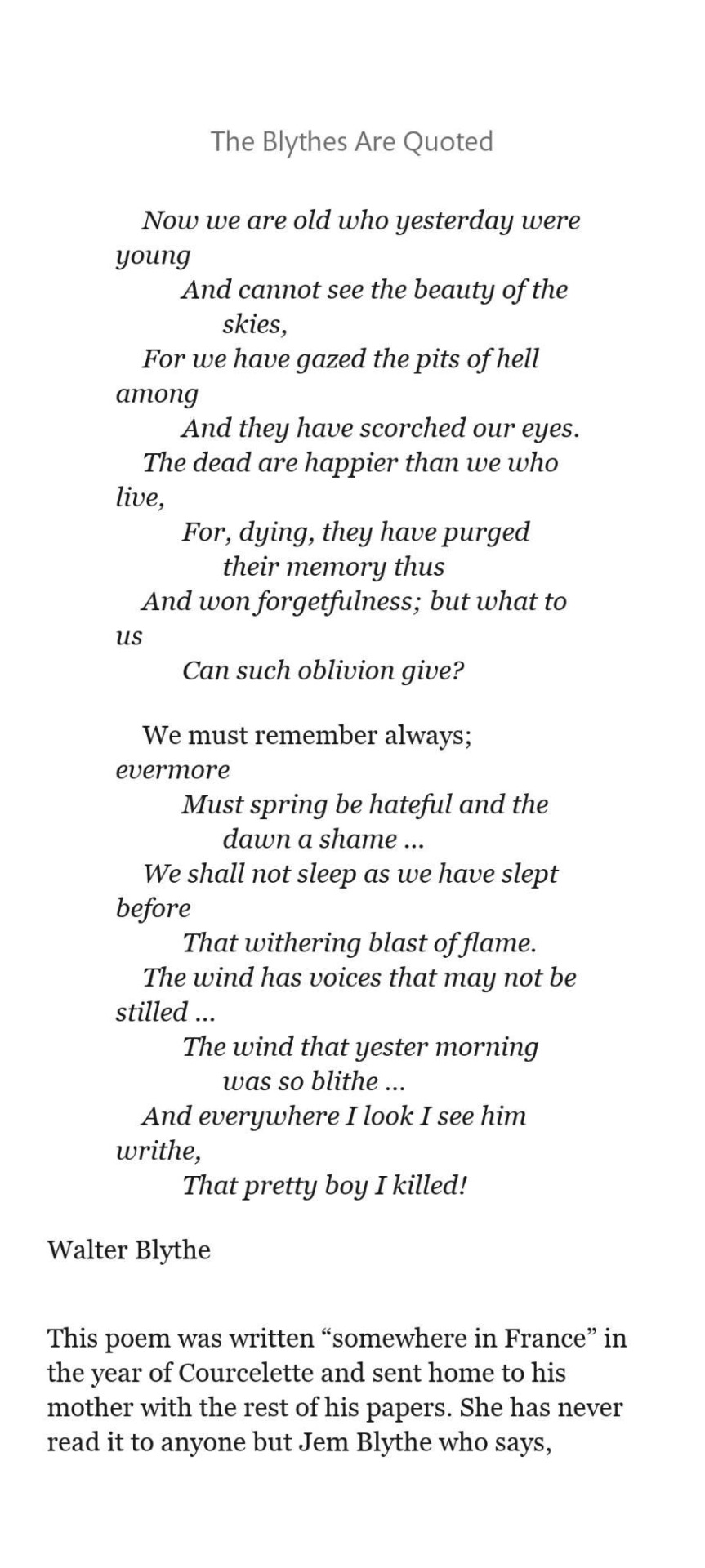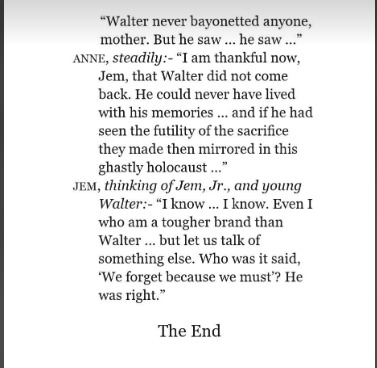#i'm about to do my “every time LMM foreshadows Walter's death” post too haha
Text
Oh, Anne Shirley, and her wonderful, uplifting, sweet, wholesome stories. The series begins with a little orphan girl who finds a home and a family, saving Matthew and Marilla just as much as they save her. Anne walks as if about to fly, wandering through life with her head the clouds but her heart in the right place, and even through all her scrapes, from the embarrassing to the wrong to the hilarious, she keeps her eye true to herself and retains her sense of wonder and imagination even as an adult.
So, how do we reconcile this with how the series ends?
You mean Rilla of Ingleside, batrachised? you ask, thinking of our more heartbroken and downtrodden Anne. But no. I'm referring here to The Blythes are Quoted. This is the book that actually contains the last glimpse we see of our beloved Anne Shirley. And, to be frank, it's dark. I read it the other day (although my friend gogandmagog warned me, she WARNED me) and had to sit with it.
Before I share the passages, some context: LMM intended TBAQ to be published, although it wasn't published in her lifetime. The foreword to the book notes the difference between the Piper poem referred to Rilla, and Walter's hopeful letter about making Canada safe for the poets of the future--and then, what we see in this book.
Here is the last chapter we get in Anne Shirley's story [warning: heartbreaking]:



So there we have it-- a poem where Walter imagines killing a boy (although I personally think we could read this as Walter actually killing someone, because how would Jem know?) and then Anne steadily saying she is thankful Walter didn't live to see what the world would become. At the end of TBAQ and the Anne series, WWII is raging. Rilla reflects on how, once again she's waiting for the horror to end, but this time with a son at the front. Even Jem, so bold in the first book (although he returns "no longer the laughing boy brother" who left), now has sons in WWII, now the one waiting at home for their safe return.
There's a lot to reflect on on this passage; how LMM clearly became disillusioned by WWII -shown in Anne's words, how the front impacted Walter's imagination and creative outputs, how this is the ending LMM chose for the characters (although perhaps she would have written more if she had lived longer, we can never know)--"The End" here is stark. "We forget because we must," the last words LMM wrote for Anne's story.
But, I think Jem is wrong (from a certain point of view). I had to mull over the contrast between what Jem says and what Walter writes (and also because, to be honest, my ability to interpret poetry is of equal capacity to a toenail's). Jem describes himself as made of tougher stuff than Walter, but what stands out to me here is that, from a certain perspective, Jem's thoughts are radically different than his brother's. Jem explicitly says they must forget; Walter explicitly says they must remember always. Even in the poem, assuming this isn't a publisher error, those words aren't italicized, emphasized amidst the rest.
Of course, Walter is discussing the pain of remembering; his message is that he'll never be able to forget, which parallels Jem's of having to forget. Both touch on the horror of WWI from different directions. To be clear, I think that was LMM's intent. But stepping beyond her intent, there's an underlying, unintended (?) message here of how forgetting risks repeating, something the characters are living through. Forgetting risks rendering the sacrifices made futile.
To my earlier question of how we reconcile this end: we don't, at least in my opinion (although I'd love to hear other's thoughts). I think the message here is all the more powerful because it's from our beloved Anne. It demonstrably condemns war, without any sugarcoating or even hope. A sharp contrast to the rest of the series, yes, but I think it's a fair one.
#the blythes are quoted#walter blythe#aogg#anne shirley#i'm about to do my “every time LMM foreshadows Walter's death” post too haha#it's PAIN TIME#i recognize these thoughts are rambling but please do not expect me to be coherent or normal about this passage#it's too SAD
85 notes
·
View notes